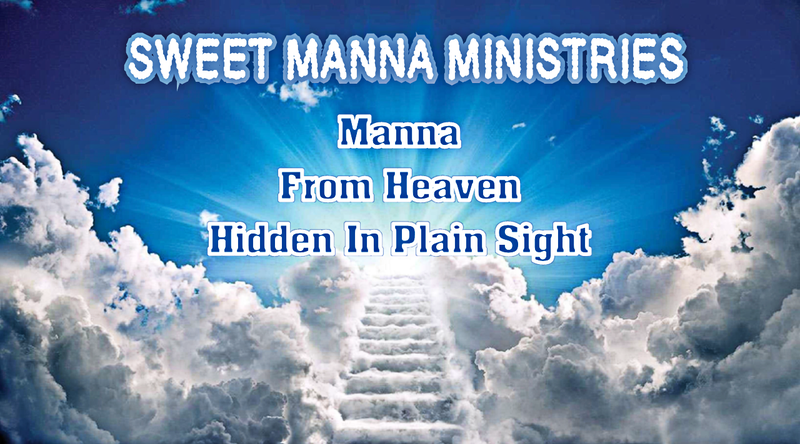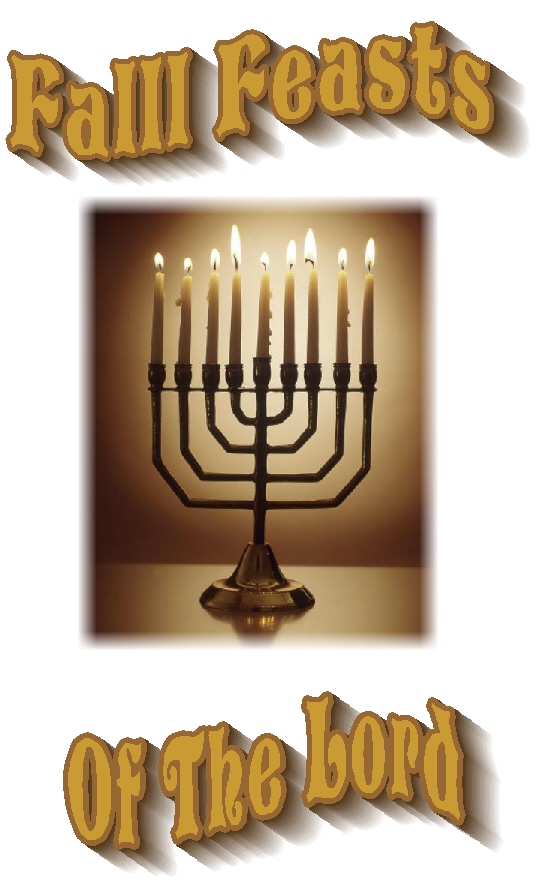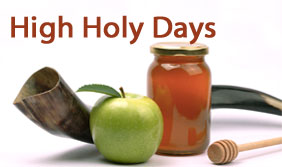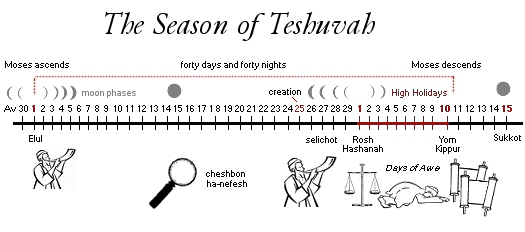The Teaching Ministry of
Rev. Marjorie Kummrow
Bible Studies
This ministry has made a choice to be "Biblically correct" as opposed to "politically correct" therefore we have forfeited the non-profit status available to us. Please note that all donations to this ministry are not tax deductible. Thank you for your support.
Preparation to the Fall Feasts Revised
Part 1
Preparation to the Fall Feasts, known as the High Holy Days...
I believe this to be a blind spot of deception put there by Satan himself. It keeps most of the body of Christ in a state of disobedience because the command is to celebrate these feasts forever. Why are the feasts relevant for Christians you might be asking? Because the feasts were given to Israel and we have been grafted into Israel, that’s why. I am very much encouraged by what I perceive as the blinders being removed from the body of Christ today. Because more and more Churches are recognizing the value of celebrating the Lords Feast days.
Since Jesus has precisely fulfilled all of the Spring feasts, he has set the pattern of expectation of Him also fulfilling the Fall feasts at some point in time. A comprehensive study on the Spring Feasts can be found at:
http://sweetmanna.org/BibleStudies.html If you have not had an opportunity to study those feasts I would highly recommend doing so before continuing with this study. These feasts set the stage for this study.
The word of God commands us to celebrate all of these feasts; therefore this study will be on the Fall feasts of the Lord. These feasts or festivals are better understood as appointments with God. The Lord has set an appointed time for us to meet with Him. Just like the spring feasts, they are rehearsals for the real thing. The spring feasts pointed to Yeshua’s first coming and the fall feasts are rehearsals for the rapture, the wedding of Messiah, His return to judge the earth, and the rejoicing of Yeshua and His Bride as they rule and reign together.
My hope is that this study will open our eyes to view these appointments with God to be as important to us as they are to God. My great fear is that the Church at large will find themselves in the same state of being unprepared as were the five foolish virgins. They had not kept their lamps filled with oil and the door to the wedding was closed to them. Let’s look at it this way, you have been given an invitation to a wedding and you do not open the invitation to discover when the wedding is going to take place, therefore you miss it altogether.
Of the seven feasts, four of them are in the spring of the year and the three remaining to be fulfilled are in the fall. I want to examine the deeper hidden meaning of these feasts or festivals. The fall feasts paint a picture of the need to repent before the return of our Lord. They speak of the gates of heaven being opened; we see this as the rapture. They speak of the book of life being opened, the wedding day of the Messiah and the Coronation of the King; they speak of the coming of the Messiah to judge the people of the earth on a day that the blasts of the trumpet will be heard. We see this as His second coming. Finally they paint a picture of a joyous time when the Bride of Christ will rule and reign with Him for a thousand years. Three main themes are emphasized in the celebration of these appointed times. They are Repentance, Redemption and Rejoicing.
This season is for 40 days. Forty days in the Bible generally represents a time of testing that ends either in victory or judgment. At the 30 day mark is Rosh HaShanah and then 10 days later is Yom Kippur. These days are known as the High Holy days, or the days of awe. Then just 5 days after Yom Kippur is Sukkot or the Feast of Tabernacles, and lasts for seven days.
Beginning on Rosh Chodesh, which is the beginning of a new noon signifying the start of the month of Elul, and continuing until the day before Rosh Hashanah, also known as the Feast of Trumpets and the Wedding of the Messiah, it is customary to blow the shofar (ram's horn) every day (except for Shabbat). This practice is said to be adopted because it was in the month of Elul when Moses returning for the third time to Mt. Sinai blew the shofar as a reminder to the people to remain faithful and not to fall into sin again, as they did with the golden calf.
The blowing of the shofar every day is intended to awaken us in preparation for the Lord’s feast days that take place year after year. More importantly though the blowing of the shofar, is to awaken the Bride Church in preparation for Yeshua’s imminent appearing. The fall feasts are rehearsed prophetically until the final curtain is raised and the Eastern sky parts at His appearing.
The custom is to first blow what is known as tekiah (תְּקִיעָה), a long single blast known as the sound of the King's coronation. This is followed by shevarim (שְׁבָרִים), which is three short, wail-like blasts to signify a call to repentance. The blasts that follow are called teruah (תְּרוּעָה), these blasts are several short blasts of alarm to awaken the bride. The closing shofar is called tekiah hagadol (תְּקִיעָה הַגָּדוֹל), it’s a long, final blast:.
The blasts of the shofar speak prophetically about the purpose of the month of Elul.
1. Announces the approaching coronation of the King
2. Signifies a call to repentance
3. Sounds the alarm for the Bride to awaken or arise.
4. Concludes with the Great Trump which is the signal to announce Yom Kippur, the day of atonement,, the day that Israel will be saved in one day.
The thirty days of repentance should speak to everyone. During these 30 days the shofar blasts every morning to remind everyone that they are in the season of teshuva. As believers in Messiah it is a time for us to examine ourselves and to repent for those things that are displeasing to the Lord. It is a call from God to return to Him if we have gotten off on the wrong path. The picture that the Lord is painting for us concerning these thirty days of repentance is that everyone should repent before Rosh HaShanah, because there will be a moment in time when it will be too late to repent in time for the rapture. Scripture tells us that some will be taken and some will be left behind.
The word repentance in our English translation is actually the word teshuva in Hebrew. Teshuva has a slightly different connotation in Hebrew than repentance does in English. Webster’s 1828 dictionary defines repentance this way: Repentance is a change of mind, or a conversion from sin to God. Repentance is the relinquishment of any practice, from conviction that it has offended God. Teshuva on the other hand has a sense of restoration because one returns to God. Teshuva has a higher goal of returning face to face with God, rather than just turning ones back on sin. This is the season that represents the Bridegroom calling for His beloved to return to Him and His covenant promises.
Although the message of teshuva is about our return to God, its message however is much more about the One who forgives the repentant sinner. It is about the love story and plan of the Father and His Son Yeshua who is willing to accept anyone into the household of God no matter how evil they have been, as long as they have had a change of heart and long to put their dark days behind them by accepting the gift of salvation that is so freely offered to them. It is about the blood of Jesus cleansing us from every sin. It is a message for all people to leave their dark days behind them and to walk in God’s glorious light, never to look back, but to enjoy the freedom of the Lord’s forgiveness moving forward. It is a message of a loving Father calling all to be comforted in His love and forgiveness and experiencing the joy of the Lord.
It is interesting to note that the month of Elul is the month that Jews consider to be the month that our God and King draws closes to us. It is said of the month that, “The King is standing in the field.” What that means is that the King has left His palace and has such a desire to be with his people that he has left all of his pomp and circumstance behind to come near to where they are that he loves. He has removed his royal robes to become as one of them. He bids them come, come my beloved let us commune together face to face.
The Jews who have not yet accepted Yeshua as their Jewish Messiah are looking for their King and Messiah in the field at this time of the year. We who know Yeshua recognize that 2,000 years ago, He left his heavenly palace, and left all his heavenly pomp and circumstance of His divinity behind to come to the field of earth to be near those he created and loves. He came to the field of our lives to commune face to face. For 2000 years our King has been plowing the fields of our lives preparing His bride for the wedding of the Messiah and the 1000 year reign.
The message of Teshuva is also about the Lord who is longsuffering and although He is a God that forgives and forgets, His longsuffering will come to an end because the time on this earth as we know it will come to an end, just like the forty days allotted for teshuva will come to an end. The Lord is teaching us through these feasts to look to a pattern that He has followed throughout history. God has always given people a period of time to repent before He comes to judge. The day is coming when the Lord will return and judge the peoples of this earth, let us be found with our sin erased by His blood and walking in the freedom and love of His forgiveness when “that Day” comes and He splits the Eastern skies.
The letters E-L-U-L is thought to be an acronym for the Hebrew,
"Ani L'dodi V'dodi Li" "I am my beloved's and my beloved is mine”, found in the Song of Solomon.
Son 6:3 I am my beloved's, and my beloved is mine: he feedeth among the lilies.
Now dropping down to verse 13, we find here Solomon is crying out for the Shulimite. The book of the Song of Solomon is a prophetic look at Messiah and His Bride. Solomon who is crying out for the Shulimite is a picture of Yeshua crying out for His Bride Church.
Son 6:13 Return, return, O Shulamite; return, return, that we may look upon thee. What will ye see in the Shulamite? As it were the company of two armies.
Throughout the Hebrew scripture when ever a word is repeated, like it is here with the word return, it is meant to emphasize its importance. The fact that the word return is repeated 4 times in this passage should be a signal for us to pay close attention.
Let’s take a look at this as it pictures Messiah and His Bride. Solomon is crying out to the Shulamite to return. Solomon’s name means prince of peace. Messiah is the Price of Shalom. The Shulamite represents the Bride of the Messiah and Shulamite means daughter of peace. So the picture is that of Messiah who is the Prince of Shalom is crying out to His Bride, who is the Daughter of Shalom. Based on the meaning of the Hebrew and the prophetic picture that is painted in the Song of Solomon of Messiah and His Bride, a deeper understanding of the Hebrew word pictures could be interpreted like this.
Face me, come back to me, face me, come back to me, My Bride, O Daughter of Shalom, face me, come back to me, face me, come back to me, that we, i.e. Elohim, Abba, Yeshua, and the Ruach HaKodesh along with the angels may look upon thee. What will you see in Your Bride, the Daughter of Shalom? As it were, our gaze is upon a company of dancers, warriors, from Israel and warriors from the Gentiles nations dancing in unity as one man, My Bride, My Daughter of Shalom.
If you want to be included the company of dancers, seen as the Bride of Messiah, Jew and Gentile alike, and experienced what it feels like to be comforted by God’s forgiveness and His awesome love, let me assure you that it is available to you just for the asking. God the Father loves you with and everlasting love and He has been waiting for you to open up your heart to receive it. Just ask!
Father God, I come to you this day asking you to forgive me for all the ways that I have sinned against you and sinned against the people that you have put in my life. I thank you that you sent your son Jesus to become my sacrificial lamb shedding His blood to make atonement for all of my sin. I want to be reconciled with you Father through Jesus the Messiah, I want to walk away from my sinful ways and live the life that you intended for me. I sincerely repent for going my own way, for sinning, and for leaving you God out of my life. Now I ask that you would empower me to walk upright before you by sending your Holy Spirit to come and tabernacle with me, making my heart your home. I open my heart to you. I stand before you this day, receiving your forgiveness and your love because Jesus accomplished it all at the cross for me. And now Lord I ask that you reveal yourself to me day by day. Thank you for your plan of salvation. Amen!
If you prayed this prayer with a sincere heart, you have just been added to the household of God. Welcome to the family of God. Your life is about to change in ways that will thrill and delight you. The God of the Universe is going to be communicating with you in two ways, through His written word and through His spoken word. So, your part is to get yourself a Bible and start reading, pray for understanding, and He will open up your understanding as to what is written there. Also begin pray regularly, and spend time listening for a small still voice coming from within your heart. He will open up your ears to hear His sweet voice.
1 Daniel 7:25
2 Ibid
To continue with Part 2 of this series, click on RoshHaShanah-One Long Day
In His Service,
Rev. Marjorie
marjorie@sweetmanna.org
If you have any questions, please feel free to email us.
Contact us to be put on our email list at mailinglist@sweetmanna.org or make a prayer request at prayerwarrior@sweetmanna.org
Preparation to the Fall Feasts
High Holy Days
Part 1
Of all the end time prophecy that is in scripture, I believe the prophetic statements that are contained in the Fall Feasts are the most overlooked. In fact I believe that the Seven Feasts of the Lord to be the most neglected topics in the Bible. Most clergy in the body of Christ believe that these feasts are irrelevant today.
This fall season begins with a season that is called the “Season of Teshuvah”, which means to return to the Lord or repent. This season of repenting begins on the first of Elul on the biblical calendar, it corresponds to August and September on our Gregorian calendar. These feast days all begin in the evening because a Jewish day is from sunset to sunset.



